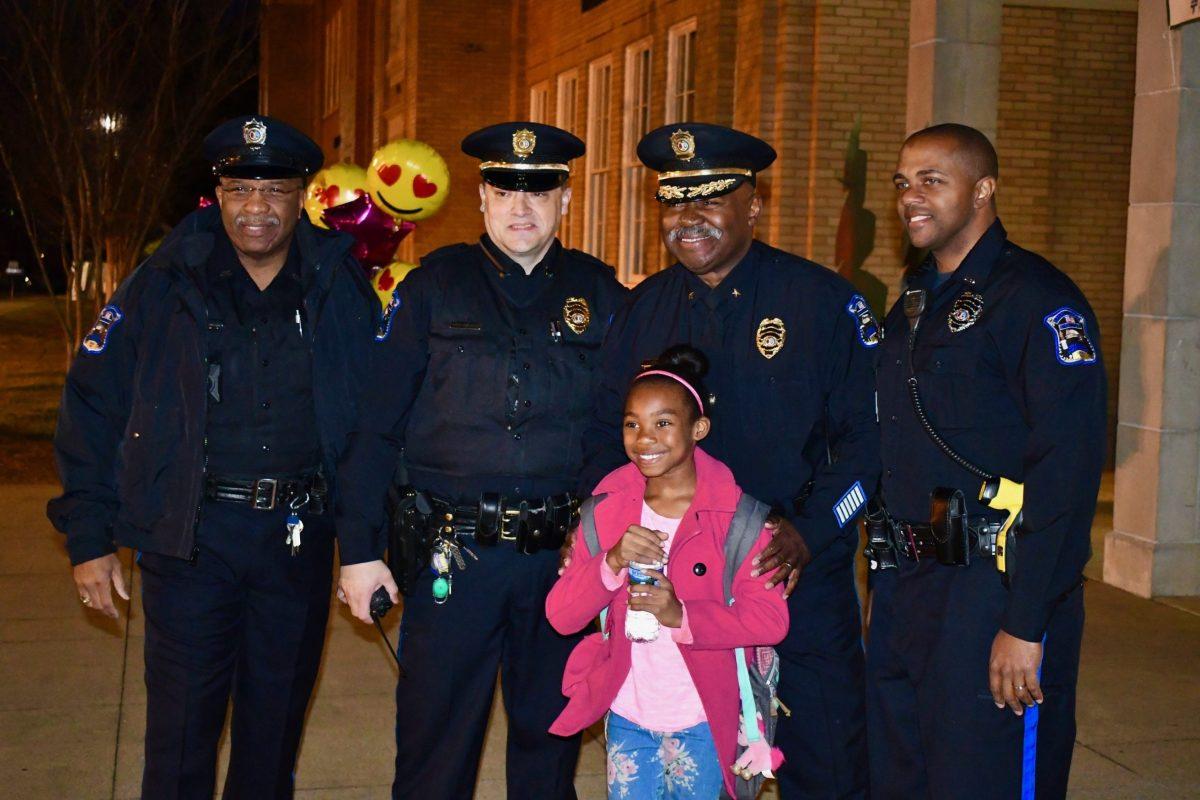Acknowledging the positive work of police officers in the Spartanburg community
The culminating effects of civil unrest, resulting from certain instances of injustice combined with media sensationalism have contributed to the mischaracterization of every police officer as prejudiced, devoid of compassion for the people whom they serve and all too quick to pull the trigger when they encounter a black male.
When solely one angle of a narrative is portrayed, the result is an incomplete and one-dimensional version of the truth. Rarely are policemen depicted as human beings or highlighted for positive deeds; such as officers who are dedicated to lifelong learning and refinement of policing strategies, carrying a missing child home, interacting with the community as a family unit or shielding innocent civilians from the senseless violence of others.
This is not to invalidate the experiences of those impacted by brutality, but to convey that an entire group should not be demonized for the actions of a few.
Major Art Littlejohn, who has served as an officer in the Spartanburg community for 31 years, provided insight on what policing means to him. Littlejohn oversees the daily operations of every uniformed officer, including mentoring younger officers, a responsibility which he does not take lightly.
He cited his view of his cousin, who was also an officer, as a role model in the community and the grace of God as his motivations for choosing to serve on the police force.
Littlejohn said, “I had a cousin who worked as a police officer and I saw him as a role model in the community, therefore I wanted to follow in his footsteps by being that same positive influence for others. I was also seeking a challenging career opportunity to do something noble. In my opinion law enforcement is still the most noble profession in our country.”
Littlejohn went on to discuss the relationship between the local community and the police department, describing it as a partnership rooted in mutual respect.
“I believe the Spartanburg Police Department has a wonderful working relationship with the community and we have for many years. We believe in community policing. Our police officers are part of the community. In fact, many of our officers grew up in Spartanburg and attended one of Spartanburg County’s public schools. On a daily basis, someone from the community offers to buy an officer a cup of coffee or pay for their meal.”
Littlejohn also expressed his thoughts concerning the characterization of policing in the news and the perceived disconnect between citizens and officers:
“Officers with the Spartanburg Police Department respond to many calls for service with no complaints. This means officers are doing right by the citizens they serve. It is unfortunate that the media has painted a picture of negativity with a broad brush indicating all officers are racist. This is simply not true,” Littlejohn noted.
“No one hates a bad cop more than good cops, he said,“Remember, officers come from our local communities and they live in those same communities. One of the most important things an agency can do is hire good people. The Spartanburg Police Department is committed to hiring a diverse workforce reflective of the community we serve. For example, minority recruitment is a must for the community to view officers as regular people with families seeking the same goals in life. Officers are human; not just an authority figure seeking to make an arrest.”
Littlejohn said, “When good officers continually do the right thing, they are angered when they are painted as the villain. They are patrolling during the night while others sleep comfortably in their beds. They are protecting the family members who are stuck in a horrible domestic violence relationship.”
Despite recent unrest, Littlejohn maintained an optimistic outlook for the future, encouraging honesty and open dialogue as the remedy for division and misinformation in saying, “I am of the opinion; transparency is the best start as our society moves forward towards bridging the gaps between law enforcement and the community.”
Written by Nehmiah Broadie





























